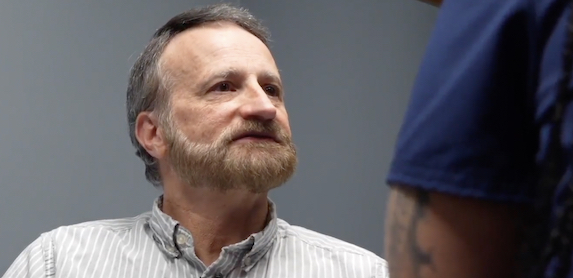Knowledge is power! Care Access supports multiple Alzheimer’s clinical research studies. Find out the best potential research participation option for you.
Changes in the brain can occur 10-20 YEARS before Alzheimer's disease symptoms appear
1 in 9 adults ages 65 and older experience symptoms of early Alzheimer’s disease
Family history of Alzheimer’s disease can increase your risk for developing the disease

"For me it was a no brainer, without clinical trials, we’re never going to have medications, we're never going to have a cure."
Connie L.
Alzheimer’s Study Participant

"If I can participate in this study and there’s hope for this disease, a hope for a cure for this disease, then I want to be a part of it."
Mary R.
Alzheimer’s Study Participant

“I’m very positive about this study, and very excited about it. And if it doesn’t help me, maybe it’ll help other people. It could help my children, my grandchildren…Everyone. The whole world.”
Susan C.
Alzheimer’s Study Participant

"I want to prevent it for me, but if it helps civilization as a whole, then that’s good!"
Rodney R.
Alzheimer’s Study Participant
Testimonials provided by trial participants are personal experiences and do not necessarily represent the views of the trial sponsor or Care Access. They are not a substitute for medical advice, and the results of the trial may vary based on individual circumstances. Always consult with your healthcare provider before making any medical decisions.


Alzheimer's disease is the most common type of dementia. Dementia is a steady decline of memory, thinking, and reasoning skills that impacts a person’s quality of life daily. Memory care techniques are often encouraged by doctors as that can help strengthen cognitive (mental processing) function.
Typically, memory issues and problems finding the right words or getting lost in familiar spaces are common early signs of Alzheimer's disease. Early onset Alzheimer's disease occurs when patients experience symptoms of dementia between the ages of 30 – 60. It’s important to recognize and address any progressive decline in memory or thinking as almost half of patients do not discuss those changes with their doctor.
Alzheimer's disease stages are preclinical, early (mild), moderate (middle), and severe (late). During these stages, symptoms range from being unnoticed to very severe. However, in each stage the brain is affected and changed by the disease. In some cases, early onset Alzheimer's disease occurs when patients experience symptoms of dementia between the ages of 30 – 60.
The cause of Alzheimer's disease is unknown in most cases. However, in cases of early onset Alzheimer's disease, there could be a genetic factor. There are many other factors that could also affect a person’s chance of developing Alzheimer's disease.
Although the cause of Alzheimer’s disease is unknown, for cases of early onset Alzheimer’s disease, there may be a genetic factor for those who have a family history of Alzheimer’s disease. Currently, researchers are learning to measure biomarkers in blood samples. Other genetic factors like Downs syndrome increase the risk of developing Alzheimer’s disease.
Currently, there is no Alzheimer's disease treatment or cure. Certain Alzheimer’s disease treatments are being developed that may help treat symptoms. Memory care techniques are often encouraged by doctors as that can help strengthen cognitive function. Fortunately, new medical research is developing medications to treat early onset Alzheimer's disease hoping to slow the progression of the disease. See if you qualify to participate in a research study today.
Making memory care a priority early on is important for anyone, especially for those with family history or signs of Alzheimer's Disease. Memory care can consist of some of the following: